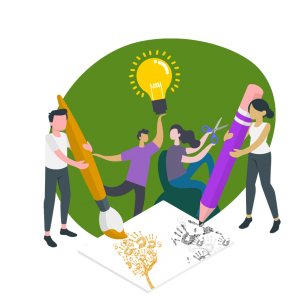Citizenship Understandings

To exemplify the complexity of understandings related to the concepts of citizenship. To increase critical thinking and raise awareness about the multitude of characteristics, social realities and ways of understanding and exercising citizenship.To associate some key features of citizenship and democracy and discuss the role of individual, youth work and citizens action in citizenship.
Participants are invited to reflect individually about their understanding on citizenship.Understanding the word (in groups with multiple languages) ask participants to write on the board the word “citizenship” in their own language
Request what is the etymological origin of this word and how is currently understood. Are there in their languages different words for citizenship, nationality, patriotism,...?
Spread the quotes around the training floor room and ask participants to read them all, to choose the one that they agree the most and to stand next to it.
Invite participants to sit near the quote they have chosen. Could happen that several participants have chosen the same one. Make a round for participants to express the reasons they choose a quote or another.
A short debriefing may follow:According to their perception, which of the quotes presented and discussed are mainstream in their society. Why do they think so?
As facilitator you can choose not to mention the origin of the quotes (write in the other side of the paper) and at the end unveil the authors and observe the reactions of participants.At the end of the annex we have included few contemporary definitions on the concept of citizenship. To conclude the session a debate around them may be opened.
We can ask our community what is the main understanding of citizenship, nationality and patriotism and explore why is this way.Do all groups in our society agree with the mainstreaming understanding? Would they feel more comfortable with other approaches?